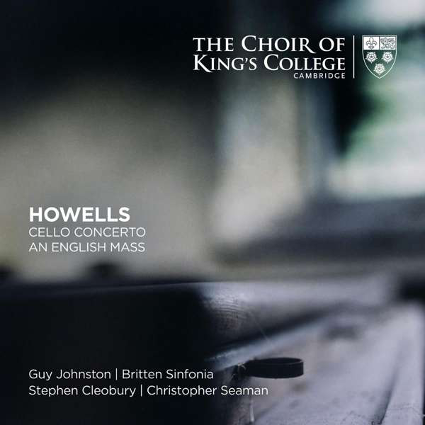Paul Spicer, who knew Howells well and has championed his music over the years, writes cathedral music in the Anglican tradition was still haltingly recovering from the doldrums of the Victorian period when standards of performance were often lamentable. As an organist in Gloucester, Howells understood that tradition, but studied at the Royal College of Music in London with mentors like Charles Stanford and Hubert Parry, and imbibed the revival of interest in Tudor and earlier liturgical music. Howells often cited Ralph Vaughan Williams’ Fantasia on a theme by Thomas Tallis as an influence. "All through my life", he said, "I’ve had this strange feeling that I belonged somehow to the Tudor period not only musically but in every way."
When Howells was appointed organist at St. John’s, Cambridge, he gained access to the resources the university could provide, stimulating an outpouring of new work. The Te Deum from 1944, written for King’s College, would eventually become part of the Collegium Regale, now known affectionately as Coll. Reg. Here, it provides a jubilant prelude to Howells’ An English Mass, with the Magnificat (in an orchestration by John Rutter) providing a glorious postlude.
This framing enhances the originality of Howells’ An English Mass. Long contrapunctual lines give the Kyrie a brooding, probing quality. The voices are subdued: the quiet ending feels deliberately ambiguous. I believe in One God sings the soloist, unaccompanied, but how far is this a cry of confidence? The answer may or may not lie in the Sanctus, defined by an assertive, almost exotic woodwind figure. The instrumentation (flute, oboe, timpani, harp, organ and strings) designed for performance in a small place, adds to a feeling of tense confinement, so the long vocal lines offer a glimmer of hope. This is reinforced in the Benedictus, with two soloists - wonderfully plangent, as if they belonged in earlier centuries where faith went unquestioned. They are supported by a semichorus, so well parted that the voices seem to shimmer. The final note, in unison, is held for several bars, enhancing the tiny figure for oboe at the end. With the Agnus Dei, a mood of supplication returns: O Lamb of God, with its connotations of sacrifice. A harp joins the strings, a hint that heaven may be in sight. While still highly dissonant, writes Spicer, the Gloria, is exuberant, particularly effective after the restraint that went before. Now the organ adds powerful affirmation. The final section is distinctive, the tenor reiterating the firmness in the Credo, the choir intoning Amen.
If the English Mass highlights Howells’s approach to faith, his Cello Concerto might reflect the tragedy that shaped his outlook, from which came the Hymnus Paradisi. The first movement, completed in 1937, is monumental, almost twice as long as the other two movements. Coincidentally, the cellist, Guy Johnston, was once a King’s chorister. Christopher Seaman conducts the Britten Sinfonia. While the movement could be considered a theme and (continuous) variations, writes Spicer, there are also two large arches to the form where he builds on each successive variation to create a major climax, which then gradually dies away to a central passage of relative calm and stillness; the whole arch-process is then repeated again, this time with greater intensity as he compresses the early variations. The cello enhances Howell’s extended lines, so they seem like long-held breaths. The cello functions like a giant lute, bowed as well as plucked, intensifying the sense of timelessness and melancholy. The concerto wasn’t fully completed by Howells. Spicer describes the process in which the piece was prepared for performance. For this reason alone, this recording is significant, since Howells considered the Threnody among his finest, most personal works. It received its premiere in 2016 at the Three Choirs Festival in Gloucester. The second movement is remarkable, combing strong, dark motifs against moments of string refinement, the cello ‘s long, resonant lines rising plaintively above. The finale is more angular and energetic, with a childlike sense of fun. Overall, the restless tension and richness of aesthetic seem to match Howells the man so well says Spicer, who should know better than most, transforming the concerto into a soliloquy on grief and the associated mixed emotions.
This recording is completed by Howells’ Paean, Master Tallis’s Testament and Three Rhapsodies op 17 with Stephen Cleobury on the King’s College organ. Altogether a significant contribution to the Herbert Howells legacy.
Anne Ozorio
